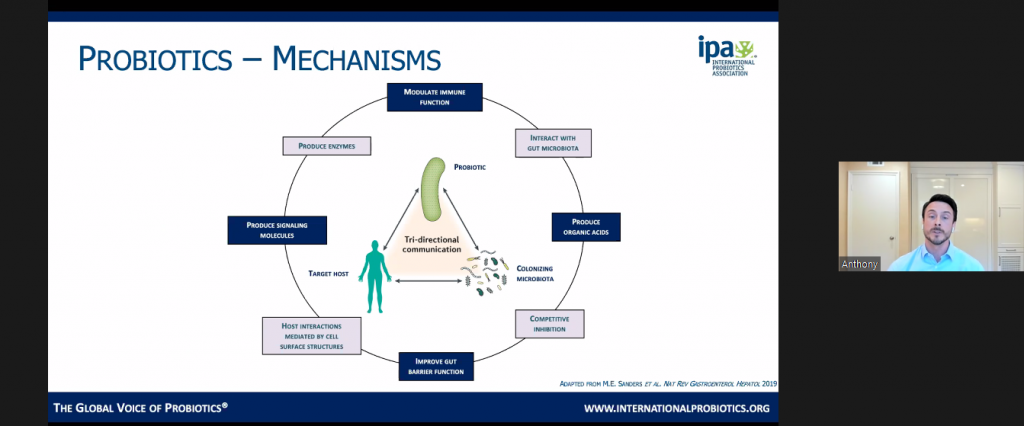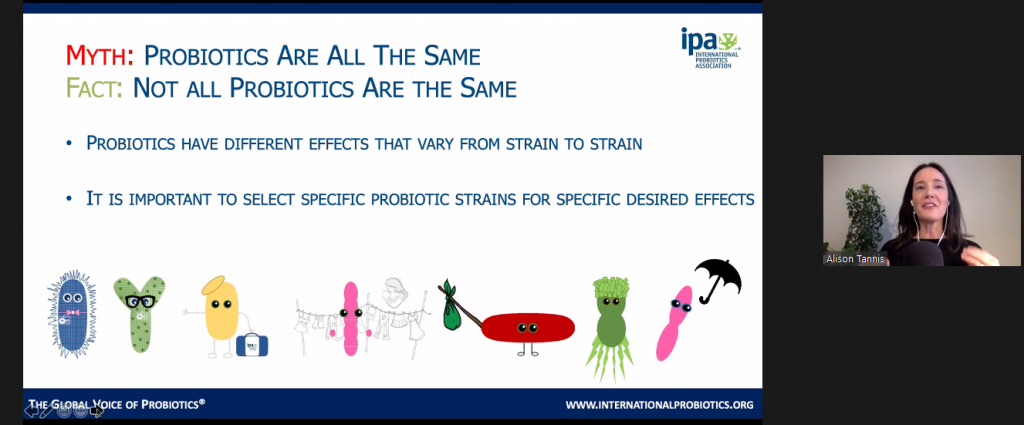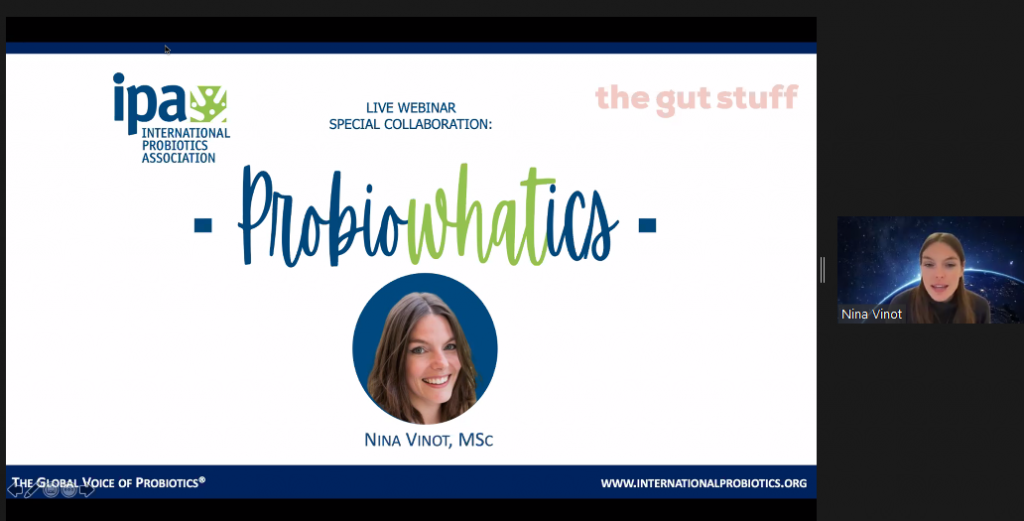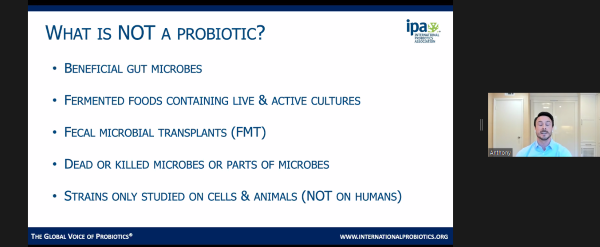The International Probiotics Association, in special collaboration with The Gut Stuff, recently hosted “Probiowhatics?” — a webinar with a panel of probiotic experts and influencers.
Lisa MacFarlane, co-founder with her twin sister Alana Macfarlane Kempner of The Gut Stuff, introduced the sessions with George Paraskevakos, Executive Director of IPA.
“Probiowhatics” speakers

Anthony Thomas, Ph.D., Director of Scientific Affairs at Natreon and a member of both the Scientific Committee and the Education and Communication Committee at IPA started it off with a big picture overview of the human microbiota. He explained how personalized the makeup is across people and lifespan, dysbiosis vs. a healthy gut microbiota, and that mechanisms of microbial action are strain-specific. Dr. Thomas stressed that “More strains are not better, better strains are better.” In concluding, Dr. Thomas explained the essentials of a quality probiotic label, which will assist consumers as well as manufacturers.

Next up, was Allison Tannis MSc RHN, nutritionist and wellness influencer. With a zany, pun-filled style, Allison debunked 10 myths surrounding probiotics. Included were common items of misinformation including fermented foods, strain specificity, dosages, safety, storage, and others. Entertainment aside, Allison stressed that consumers should always “follow the science.” Allison writes a series for IPA called Monthly Microbe where she highlights a probiotic microbe in a user-friendly way. Follow her @DeliciousGeeky on Instagram and on her website www.AllisonTannis.com.

Nina Vinot, MSc, International Sales Director at TargEDys and IPA Education and Communication Committee member began with the history of fermented foods, microbiota, and applications in human health. She emphasized a holistic view of health whereby humans are part of a vast ecosystem. In addition, Ms. Vinot spoke about an envisioned future of personalized stool analysis in which smart toilets will analyze fecal microbiota, interpret needs and suggest beneficial dietary and supplement changes.
A brief question and answer period closed out the hour-long session.
The webinar will be available on demand.

